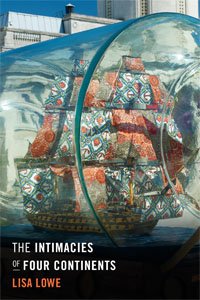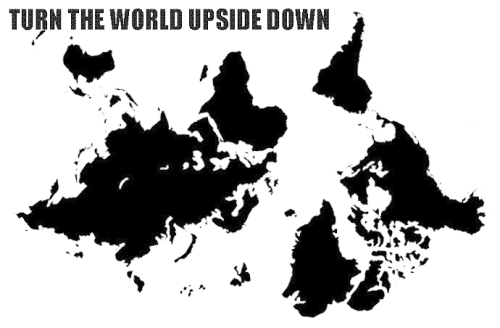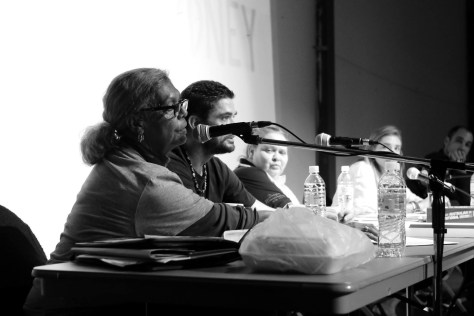After a few weeks silence due to other commitments, I am returning with the eighth blog post in the series to attend to the themes of borders and mobilities. My comments respond to Reece Jones’s book, Violent Borders: Refugees and the Right to Move which in sum I consider a good example of a lacuna I have observed at the heart of much critical thinking on the nature of borders – their overwhelming failure to consider the centrality of race. I will use the opportunity offered by the reading of this book to consider why I believe a race critical analysis should be central to work on borders and migration, what the dangers of ignoring race might be for an understanding of current urgencies. A broader question of what a reading which conceives of borders as inherently violent without thinking about the racialised nature of this violence means for our understanding of what the border does is one I leave for later on but which is triggered by the reading of this book to which the theme of violence is key. While my comments today will be relatively brief, I see these questions as being of major importance for my wider project on race and relationality; how can we suture in much of the vital work that is done in what we coul call ‘critical border studies’ into a framework that is attentive to race?
Comments closedCategory: Race Critical and Decolonial Sociology
This week we read Satnam Virdee’s Racism, Class and the Racialized Outsider, a book which takes seriously the role of Irish Catholics, Jews, African and South Asian migrants in the British left from the 1700s to the 1980s. I have committed to writing shorter blogs in the interests of leaving room for other work, so this week’s reflections are quite short and respond directly to the book’s content. In particular, I was interested in three elements of the book: the role of nationalism in the cooptation of the white working class into Britishness and away from internationalist class solidarity, the often unspoken significance of whiteness in the construction of class from a left-wing perspective, and thirdly, the legacy of politic; blackness and its discontents.
Comments closedThis is the seventh blog in the Race Critical & Decolonial Sociology series. This week we are reading Darkmatters: On the Surveillance of Blackness by Simone Browne, recommended and gifted to me by Jessie Daniels (thank you!). This book is a detailed study of how our understandings of contemporary practices of surveillance are deeply enhanced by the historicization of these practices in the history of racial slavery in the United States; it is thus focused on the United States and the particularity of the racialisation of blackness that defines that country. However, in its drawing out of several key themes – the surveillance of blackness, the retaliatory methods of sousveillance whose history can be traced from the slaveships to the present, the questions of epidermilisation, branding and visibility in a digital age against the backdrop of what Browne calls ‘prototypical whiteness’ – the book furthers the work of relationality I have been tracing since the outset of this series. For example, Browne adds to and deepens the critiques of Foucault laid out by Alexander Weheliye, focusing on the deraced reading of panopticism in Discipline and Punish. Most significantly, she draws a thread between the inscription of race through epidermalisation as a form of control and commodification under slavery to contemporary biometrics as they are used in the implementation of the racialised carceral state today.
Alexander Weheliye’s 2014 book, Habeas Viscus is a vital critique of two dominant accounts of the limits and contours of humanity: Michel Foucault’s biopolitics and Giorgio Agamben’s bare life. But beyond providing us with a much needed problematisation of these two theories, what they omit, and the Eurocentrisms they reproduce, this book offers much more. In fact, despite the book’s framing around the critique of bare life and biopolitics, Habeas Viscus in my reading is really a call to see race – and thus the concept of the human – otherwise and a rallying call for Black thought and its centrality for making sense of modernity. Alexander Weheliye, a professor of African-American studies, is primarily a cultural-literary theorist/philosopher. His points of reference and his lyrical, evocative but dense writing style are harder for sociologists to access. Nevertheless, his insistence on placing Black feminist thought at the heart of this theorization of race, the human and the ‘possibilities of other worlds’ (Weheliye 2014: 2) means that there is a lot that race critical students interested in the function of race but also the constant possibility of self-emancipation in the face of its structuring constraints can learn from his groundbreaking book.
Comments closed Lisa Lowe‘s 2015 book, The Intimacies of Four Continents, is the impetus for this week’s blog, the fifth in my Race Critical and Decolonial Sociology series. This groundbreaking work challenges us to unread standard accounts of the development of capitalist modernity and political liberalism. It does not do this only by inserting race, gender and the colonial in order to disrupt these standard accounts. While this work is vital, Lisa Lowe goes several steps further. She reorients official histories by reading the archives against each other and juxtaposes this archaeological work with an unreading of standard texts from literature, autobiography and political philosophy. The Intimacies of Four Continents is not the kind of book that sociologists are used to reading, but neither is it a standard work of history, literature or philosophy as it is profoundly interdisciplinary. The book is an example par excellence of what a relational, interactive or connected account looks like, taking us several steps deeper into the discussion, begun in blogs 3 and 4, about the methodological and epistemological challenges of doing sociology with a truly global orientation.
Lisa Lowe‘s 2015 book, The Intimacies of Four Continents, is the impetus for this week’s blog, the fifth in my Race Critical and Decolonial Sociology series. This groundbreaking work challenges us to unread standard accounts of the development of capitalist modernity and political liberalism. It does not do this only by inserting race, gender and the colonial in order to disrupt these standard accounts. While this work is vital, Lisa Lowe goes several steps further. She reorients official histories by reading the archives against each other and juxtaposes this archaeological work with an unreading of standard texts from literature, autobiography and political philosophy. The Intimacies of Four Continents is not the kind of book that sociologists are used to reading, but neither is it a standard work of history, literature or philosophy as it is profoundly interdisciplinary. The book is an example par excellence of what a relational, interactive or connected account looks like, taking us several steps deeper into the discussion, begun in blogs 3 and 4, about the methodological and epistemological challenges of doing sociology with a truly global orientation.
The Intimacies of Four Continents contains so many multiple layers and such a rich account of interrelated histories that I will be unable to do it justice in its entirety here. I wish instead to focus on three aspects of the book: 1) its methodological contribution, which provides a concrete example of what a truly connected scholarship looks like; 2) most significantly for me, its emplacement of race squarely within liberalism; and 3) its insistence on the impossibility of separating an antiracist, anticolonial praxis from these histories and the consequent scholarship. This third point allows me to build on my comments regarding Du Bois’ activism, begun in my last blog, as Lowe uses Du Bois and C.L.R. James’ work as exemplars of what such active scholarship looks like.
Comments closed The second post in the Race Critical and Decolonial Sociology blog series is a round-up of some of the central debates in postcolonial and decolonial thinking about epistemology. The class had a very interesting discussion where for example the historicity of Ramon Grosfoguel’s timeline was interrogated. Students also tackled the thorny question, raised also by Arif Dirlik in his critique of postcolonial studies, about the validity of criticisms of imperialist or Eurocentric or what Boaventra De Sousa Santos calls ‘abyssal’ thought made by scholars who, while originating from the Global South (though not always) work at universities in the rich North, mainly the United States. We surmised that that this is a bind that we are essentially all mired it. However, that it is important to be aware of the real possibility for the coexistence of theorising and activism, thus not merely lauding the work of social movements in books and articles, but using any leverage we may have in the university to make space for them to represent themselves and to guide theory-making. This linked to the previous week’s discussion ‘Black Study, Black Struggle’ and the possibility of subverting the university to facilitate rather than thwart study in the socially transformative sense of the word.
The second post in the Race Critical and Decolonial Sociology blog series is a round-up of some of the central debates in postcolonial and decolonial thinking about epistemology. The class had a very interesting discussion where for example the historicity of Ramon Grosfoguel’s timeline was interrogated. Students also tackled the thorny question, raised also by Arif Dirlik in his critique of postcolonial studies, about the validity of criticisms of imperialist or Eurocentric or what Boaventra De Sousa Santos calls ‘abyssal’ thought made by scholars who, while originating from the Global South (though not always) work at universities in the rich North, mainly the United States. We surmised that that this is a bind that we are essentially all mired it. However, that it is important to be aware of the real possibility for the coexistence of theorising and activism, thus not merely lauding the work of social movements in books and articles, but using any leverage we may have in the university to make space for them to represent themselves and to guide theory-making. This linked to the previous week’s discussion ‘Black Study, Black Struggle’ and the possibility of subverting the university to facilitate rather than thwart study in the socially transformative sense of the word.
What are the possibilities for social and political critique opened up by the decolonial approach.I shall examine the interconnections between postcolonial theory and the decolonial, uncovering the trajectory that began with Indian subaltern studies and Latin American autonomous social science, for example. I shall also examine the impact of a critical focus on race, gender and sexuality on the opening out of decolonial approaches. This work will go towards asking questions about the epistemological implications of taking a decolonial approach as well as examining the possibilities for transformative social and political action.
Comments closed












